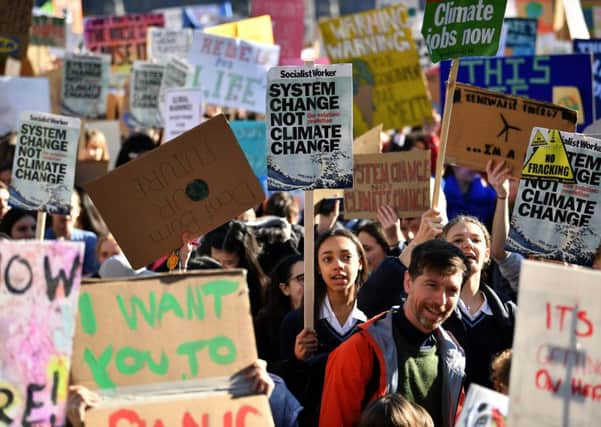Church of England vows to act on climate change


The Church’s governing body, the General Synod, voted in favour of a motion on Friday which called for dioceses to focus on reducing their environmental impact.
The Synod voted overwhelmingly for the motion, with 279 supporting it, three opposing and four abstaining.
Advertisement
Hide AdAdvertisement
Hide AdThe Bishop of Truro, Philip Mounstephen, introduced the motion, saying: “Climate change cannot be a matter of indifference for any of us and we cannot underestimate the seriousness of this.
“Behind this motion is a fundamental desire to see us, as a church, recover our prophetic edge. For that to happen I believe we need prophetic people to stir us up.”
Enid Barron of the Diocese of London, who moved the motion, told the Synod: “The church can be a very effective ambassador for climate change.”
The Bishop of Truro went on to praise the recent climate protests of schoolchildren, who he said had been “chided” by politicians and “patronised” by political commentators.
Advertisement
Hide AdAdvertisement
Hide AdHe added: “I do not want to chide them or patronise them. I want to say that I am 100 per cent with them.”
The move includes a commitment for every diocese to have an environmental programme which is led by a member of the bishop’s staff.
The possibility of a standard tool to monitor CO2 emissions in churches, cathedrals and church halls will also be explored in order for the church to help meet its target of reducing emissions by 80 per cent by 2050.
Despite receiving overwhelming support, Prudence Daley of the Diocese of Oxford criticised the motion, saying any efforts of the church would be “the tiniest, tiniest drop in the ocean” and no resources should be wasted on the endeavour.
Advertisement
Hide AdAdvertisement
Hide AdShe told the assembly at Church House in central London: “If we all do a little, together we will do a little.”
Ms Daley added: “I just think we should not kid ourselves that the local church can do anything whatsoever about climate change.
“I think we just need to face up to reality and accept that this is not something we can do.”
However Ms Barron dismissed the criticism, saying: “As Christians would we be here today if a handful of disciples who witnessed the resurrection had thought ‘we can’t make a difference’?”
Advertisement
Hide AdAdvertisement
Hide AdThe resolution by the Church of England comes after a recent report by the Intergovernmental Panel on Climate Change warned that there were only 12 years left to limit climate change by keeping global warming to a maximum of 1.5 degrees.
Another study, published earlier this month by The Climate Coalition, claimed that increasingly frequent extreme and unpredictable weather was putting the future supply of British fruit and vegetables at risk.
Across England, the prolonged drought-like conditions experienced last summer caused potato yields to plummet by a fifth overall.
Yields of carrots were also down, by up to 30 per cent, and onions by 40 per cent.
ACTION REQUIRES SOUL SEARCHING
Advertisement
Hide AdAdvertisement
Hide Adthe problem of climate change has been recognised by the Church of England for several years.
Speaking to the General Synod in 2015, the Archbishop of York, Dr John Sentamu, said the problem of climate change is “a problem of arrogance and greed” which made the dialogue difficult for the “soul searching questions it forces us to confront about ourselves and our pursuits of wealth”.
School pupils walked out of lessons last week to protest against climate change, action which was criticised by Prime Minister Theresa May.
Environment Secretary Michael Gove agreed to meet with some of the pupils, saying he recognises his generation “has a lot more to do”.